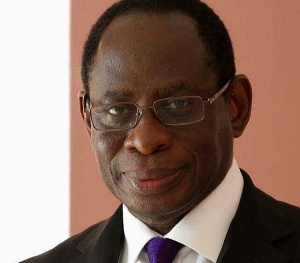The Economic Community of West Africa States (ECOWAS) appears to be making strides in achieving a single currency for the West African sub-region.
Commissioner for Macroeconomic Policy and Economic Research with the ECOWAS Commission, Dr. Kofi Konadu Apraku, who made the revelation said, “ECOWAS Commission, in collaboration with West African Monetary Agency (WAMA) and West African Monetary Institute (WAMI) and with the active support of the Central Banks, has made progress in the implementation of the Revised Roadmap for the ECOWAS Single Currency adopted in Accra in February 2018.”
This was during the 40th Meeting of the Convergence Council of Ministers and Governors of Central Banks of the West Africa Monetary Zone (WAMZ) in Abuja, Nigeria last week.
Progress report
Speaking at the event, Dr Apraku indicated that “the activities executed and ongoing include the establishment of the Special Fund to finance the implementation of the roadmap activities, process for the recruitment of consultants for the harmonization of macroeconomic and finance frameworks and the design of the model of the future Central Bank, as well as the name and logo for the future Single Currency.”
On infrastructure, he disclosed that “ECOWAS has made notable achievements in the implementation of sustainable programmes, including energy and road transport in the region.”
Aside that, he said “efforts are being made, within the framework of the financial market integration and private sector promotion, to establish a regional payment and settlement system and the ECOWAS Investment Guarantee Mechanism.”
As regard peace, security and stability, he revealed that “ECOWAS has several instruments such as preventive diplomacy, early warning, capacity building and peace-keeping and regional security and the key achievements are in the areas of the management of political crises, election support and monitoring in some member states and the implementation and administration of the Protocol on Democracy and Good Governance, which have increased the influence of ECOWAS on countries in crisis.”
On the promotion and liberalization of trade in the region, he emphasised that “significant progress has been made in consolidating the customs union status of the community.”
For this reason, he stressed the need for the creation of the Free Trade Area (FTA), through the establishment of ECOWAS Trade Liberalization Scheme (ETLS), a Protocol on Interstate Road Transit (ISRT) and a transit operations guarantee scheme.
He disclosed that the ECOWAS-Common External Tariff (CET) had been implemented by 13 member states as at August 2018.
Additionally, the Commissioner stressed that “an ECOWAS Customs Code has been adopted to ensure the harmonization of Customs legislation and operations in the region and to facilitate trade in accordance with the requirement for the proper functioning of a Customs Union.”
Concerns
Despite these achievements, Dr Apraku said that “we still have a lot of challenges to overcome. The twin challenges of unemployment and poverty, as well as the need to achieve sustained economic growth and macroeconomic convergence still persist.”
He implored the WAMZ Convergence Council to work on the ineffective implementation of the Community protocols and conventions, non-compliance by some member states with the provisions of the Community Levy Scheme; negative impacts of exogenous shocks on the national economies, a fragile political and security situation existing in some member states, which is inimical to inclusive economic growth and sustainable development.
In spite of the numerous challenges, he noted that ECOWAS remains the most dynamic Regional Economic Community (REC) in Africa.
Business News of Monday, 24 September 2018
Source: dailyguideafrica.com













